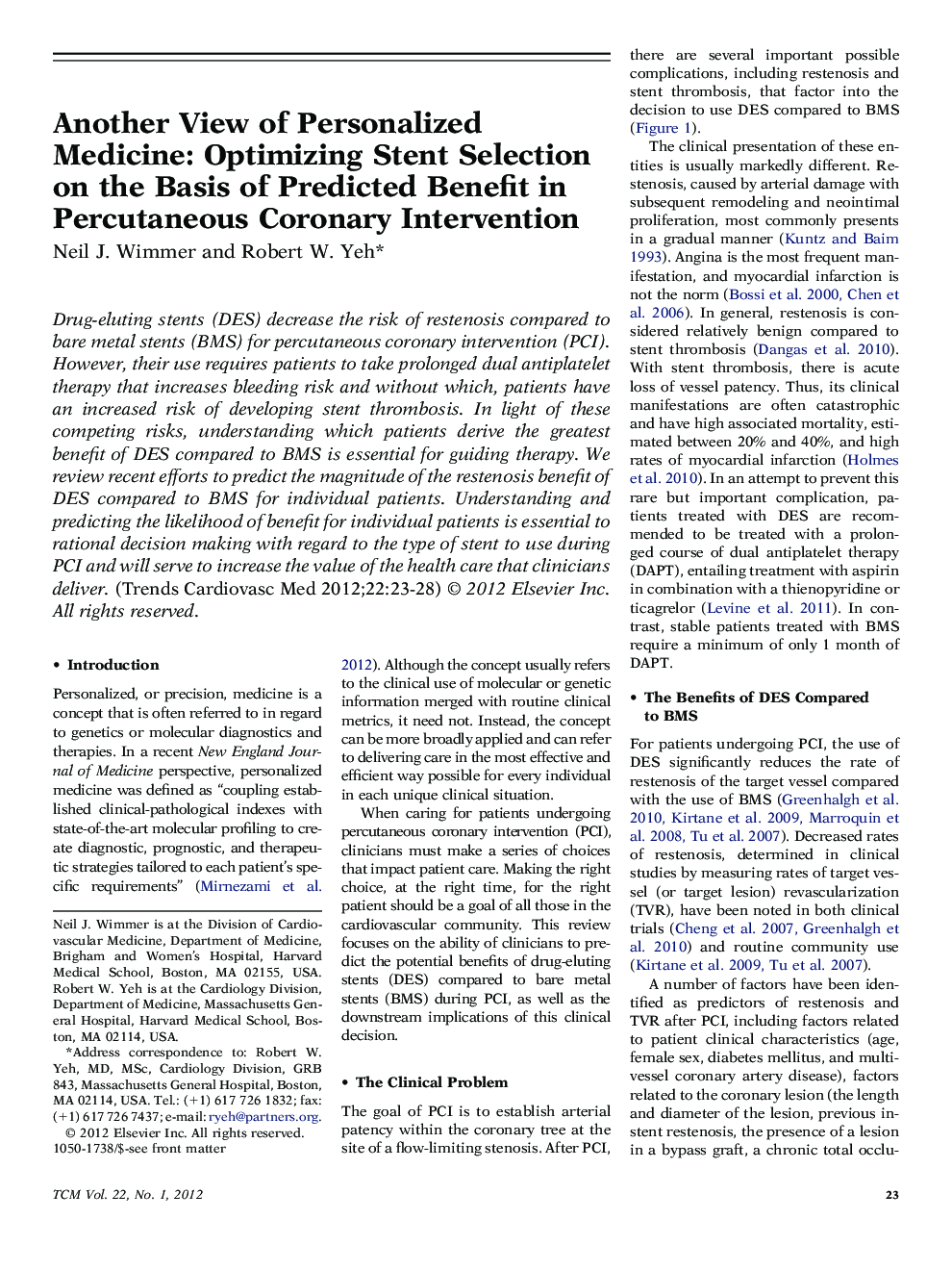| Article ID | Journal | Published Year | Pages | File Type |
|---|---|---|---|---|
| 3031055 | Trends in Cardiovascular Medicine | 2012 | 6 Pages |
Drug-eluting stents (DES) decrease the risk of restenosis compared to bare metal stents (BMS) for percutaneous coronary intervention (PCI). However, their use requires patients to take prolonged dual antiplatelet therapy that increases bleeding risk and without which, patients have an increased risk of developing stent thrombosis. In light of these competing risks, understanding which patients derive the greatest benefit of DES compared to BMS is essential for guiding therapy. We review recent efforts to predict the magnitude of the restenosis benefit of DES compared to BMS for individual patients. Understanding and predicting the likelihood of benefit for individual patients is essential to rational decision making with regard to the type of stent to use during PCI and will serve to increase the value of the health care that clinicians deliver.
